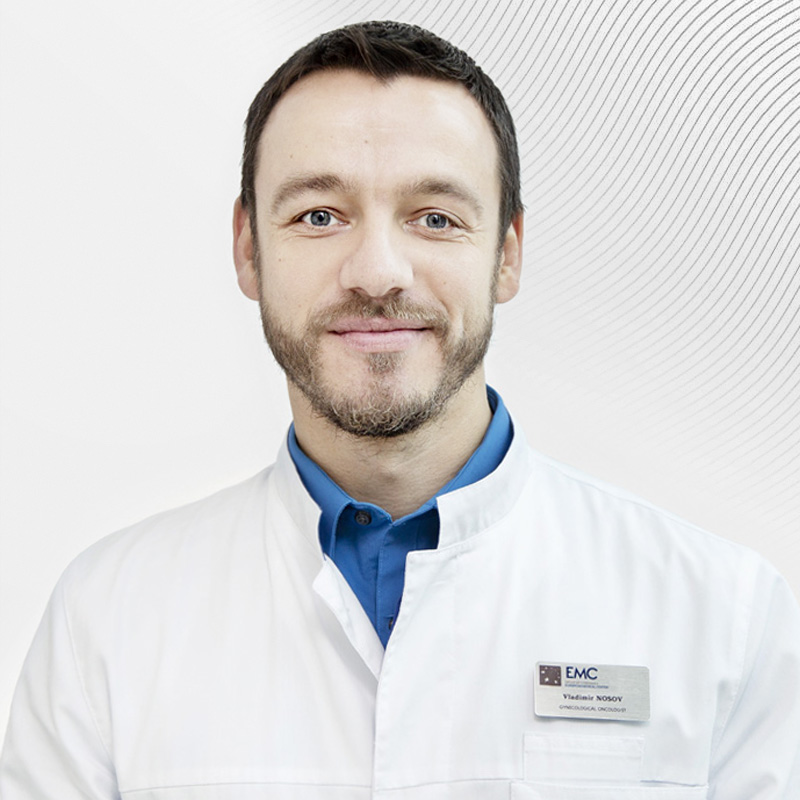Pregnancy: diagnosis of chromosomal abnormalities
A chromosomal anomaly is any change in the number or structure of chromosomes. The most famous of these is trisomy on the 21st pair of chromosomes (Down syndrome or mongolism). In addition, there are many other anomalies. Some of them are incompatible with life and, as a rule, cause miscarriages, others lead to impaired psychomotor development of varying severity, and some changes do not have any adverse effects and do not affect a person's life.
The only way to find out if your baby has a similar anomaly is to perform an amniocentesis or trophoblast biopsy, which will help determine the karyotype of the fetus. A karyotype is a child's genetic map. But such studies are carried out only in cases where the risk of a child having a chromosomal abnormality is significantly increased. Therefore, it is very important to accurately assess the likelihood of a chromosomal abnormality.
There are many ways to calculate this risk. They are all well studied from a scientific point of view, but the best method is one that requires a minimum number of tests (and, therefore, reduces the frequency of unjustified miscarriages), and at the same time allows you to determine the risk of possible chromosomal abnormalities as accurately
as possible.
Taking into account these requirements, scientists recommend using a method for determining the degree of risk that takes into account the following three indicators:
The degree of risk associated with the age of the expectant mother: it is known that the risk of a chromosomal abnormality increases with a woman's age. For example, the probability of a chromosomal abnormality of the mother's fetus at the age of 20 is 1/1500, and by the age of 39 it rises to 1/128.;
The degree of risk associated with the thickness of the occipital fold of the fetus. This indicator is determined by a gynecologist during ultrasound in the period from 11 to 13 weeks of amenorrhea.;
The degree of risk, determined by the level of certain substances in the mother's blood in the first trimester of pregnancy (beta-HCG and PAPP-A protein)
.
These three indicators allow us to calculate the overall risk of having a chromosomal abnormality. If the probability exceeds 1/250, the expectant mother may be offered an amniocentesis.
This does not mean that your child has a trisomy on the 21st pair of chromosomes, but starting from this (1/250) degree of risk, the gynecologist suggests performing an amniocentesis.
It should be noted that amniocentesis is performed by only 5% of expectant mothers (of all age groups), and in 97% of cases in these 5% of women, the study does not reveal any abnormalities in the karyotype of the fetus. This suggests that the risk of having a chromosomal abnormality is very low.
The final decision to perform an amniocentesis or trophoblast biopsy is made only by a pregnant woman, who has every right to either agree to this study or refuse it. The doctor is just helping a woman make this difficult decision.
Get help
Specify your contacts and we will contact you to clarify the details.
Doctors
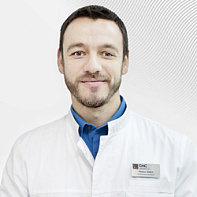
Vladimir Nosov
Ph.D. of Medical Sciences
-
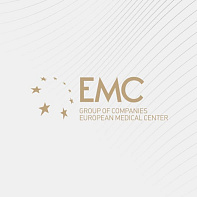
Ron Schonman
Doctor of Medicine
-
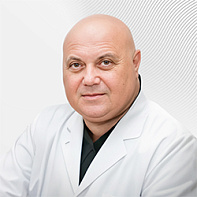
Boris Sakhnovich
Doctor of Medicine
-
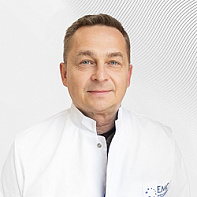
Dmitriy Subbotin
Ph.D. of Medical Sciences
-
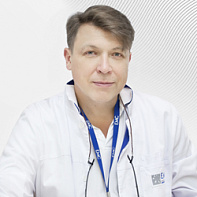
Nenahov Filipp
Doctor of the highest category
-
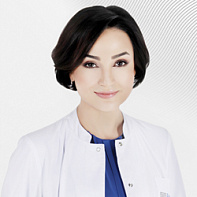
Saakyan Gayane
Doctor of the first category
-
.jpg)
Shpachenko Viktoria
-
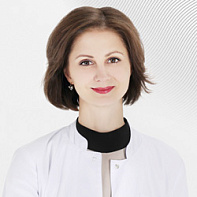
Borovkova Ekaterina
Doctor of the highest category, Professor, Doctor of Medicine
-
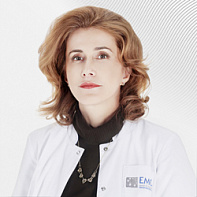
Madan Korneliya
-
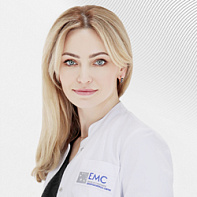
Kovaleva Larisa
Specialist in Gynecological Endocrinology, Ph.D. of Medical Sciences
-
.jpg)
Loginova Olga
Ph.D. of Medical Sciences
-

Charkhifalakyan Arevik
Head of the Gynecology and Oncogynecology Clinic, Ph.D. of Medical Sciences
-
.jpg)
Panfilova Olga
Leading specialist in prenatal fetal diagnosis, Ph.D. of Medical Sciences
-
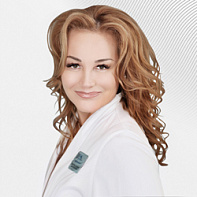
Maximova Yuliya
Head of the Center for Aesthetic and Reconstructive Gynecology, Ph.D. of Medical Sciences
-
Vladimir Nosov
Ph.D. of Medical Sciences
- An expert oncogynecologist is a surgeon with more than 26 years of experience, including experience working in leading hospitals in the USA
- A leading Russian specialist in the field of robotic surgery in oncogynecology
- Graduated from the Moscow Medical Academy named after I.M. Sechenov
- Graduated from the Moscow Medical Academy named...
Total experience
27 years
Experience in EMC
since 2012
